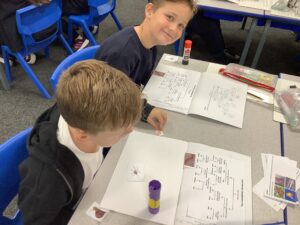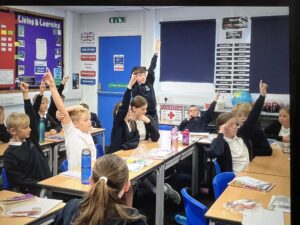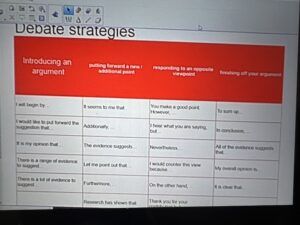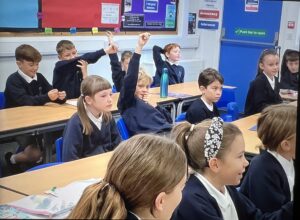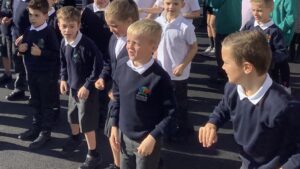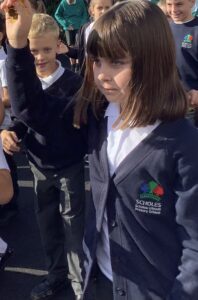This week’s message comes from Mr Wilks, who’s our Science and Foundation Subjects Leader. In this message, Mr Wilks introduces your child’s current topic…
What do we mean by topics?
Topics are the vehicle for delivering much of the learning in the foundation subjects (eg Art, History, Geography). Each half-termly topic has a driving subject – the main focus for teaching pupils knowledge and skills.
There are opportunities for enrichment through other subjects. For example, learning in an art topic may be enriched by geography learning about where an artist was born and lived.
Read more about the intent, implementation and impact of our topics.
What is this half-term’s topic?
This half-term, we’re historians. We’ll develop our understanding of the past, both in Britain and the wider world.
Each phase has age-related specific knowledge, skills and vocabulary: see pages 27 and 28 of our Curriculum Statement.
Each phase also has key historical concepts which will feature within most lessons. These historical concepts are themes that are revisited, strengthened and deepened during your child’s journey through the history curriculum. See page 24 of the Curriculum Statement.
Years 1 and 2
In this topic, children learn about a significant British historical event: The Great Fire of London.
Children will learn about life at the time of the Great Fire of London. They’ll learn where the fire started and how it spread so quickly and the innovative ways that it was extinguished. Importantly, they’ll learn about the different sources of evidence that have helped us answer these questions, including Samuel Pepys’ diary. Finally, they’ll learn about the significant changes that occurred as a result of the fire, such as legal changes about the way houses were built and the beginning of a fire service in London.
The key concept that children will learn about in this history topic is innovation.
Years 3 and 4
In this topic, children learn about Ancient Greece.
Children begin by sequencing periods of British history and seeing where the ‘golden-age’ of the Ancient Greek civilisation sits alongside. They’ll then learn about two contrasting city states: Athens and Sparta. Children will learn about the type of government these states had and what the lives of the people living there were like. They’ll then debate which city state was the best. Next, they’ll focus in on the influence that Athens has had on the world: democracy, mathematics, philosophy, literature, culture… Finally, they’ll learn about how the civilisation ended.
The key concepts for this topic are civilisation, government and innovation.
Years 5 and 6
In this topic, children learn about Stone Age to Iron Age Britain and contrast it with Ancient Egypt.
They begin by looking at and creating timelines which sequence the periods of British history and also placing Ancient Egypt on this timeline. They’ll learn about the advances and innovations that occurred during the New Stone Age, Bronze Age and Iron Age. They’ll learn about and understand that the sources of evidence we have are limited to archaeological evidence. They’ll then learn about the Ancient Egyptian civilisation and contrast this with what was happening in Britain at the same time – it’s a stark contrast!
The key concepts for this topic are innovation and civilisation.
How can you help?
Talk to your child about what they have been learning in class. The class news pages are a good place to go to find out more about what the children are doing.
Find some books from the library which match what your child is learning. I’m sure there’ll be plenty of books about the history your child will be learning about.
Watch television shows about history. Horrible Histories is great (regardless of your age!).
The BBC Bitesize history webpages have been revamped this summer and have lots of information about the history being covered this half-term.
If it’s a rainy weekend and you’re looking for something to do, why not spend a morning or afternoon in a museum? A visit to Leeds City Museum (next to Millennium Square) would be great for all children but especially for Y3,4 and Y5,6 children as it has some Ancient Greek and Ancient Egyptian exhibits, including Nesyamum, the 3,000 year old Leeds mummy!
London’s a bit far for a rainy weekend but the Fire of London website is great and will support and deepen children’s learning.


